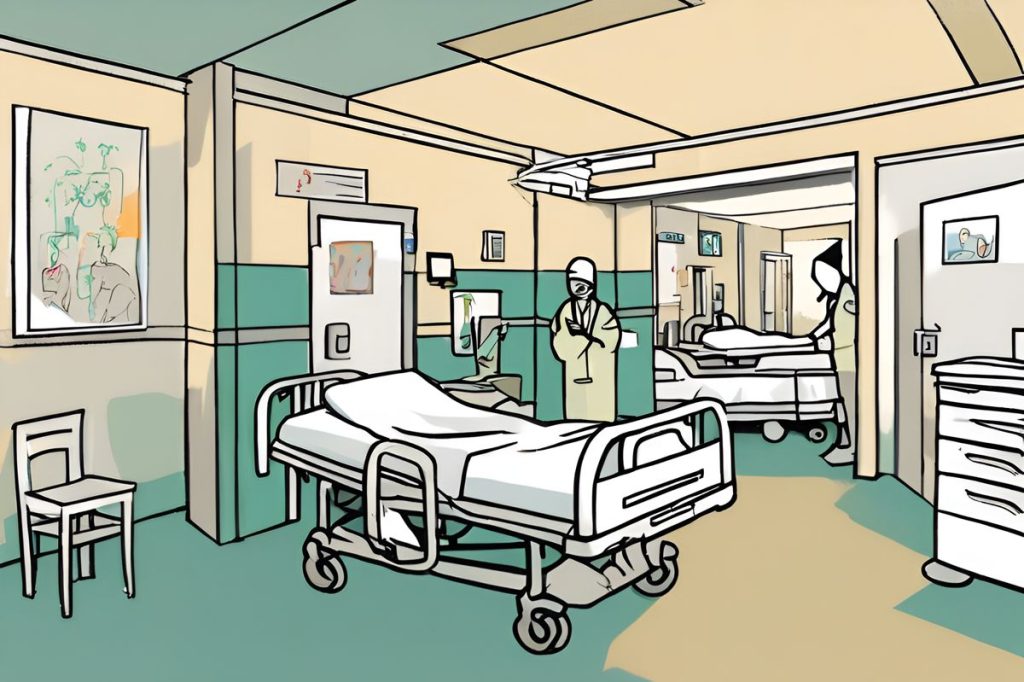Efforts are underway to stop the impending doctors’ strike, but medical professionals remain resolute. State healthcare services will be disrupted, with only emergency cases attended to, impacting thousands of patients relying on daily treatments like outpatient chemotherapy.
What is the impact of the upcoming doctors’ strike on healthcare services?
The impending doctors’ strike will significantly affect state healthcare services, leading to a disruption of scheduled operations and outpatient services. Only emergency and critical cases will be addressed by a skeleton staff at hospitals. Regular treatments like outpatient chemotherapy will be relocated, impacting daily healthcare provision for thousands of patients.
The Prelude to a Nationwide Health Sector Standstill
As the clock ticks closer to the set dates of July 2 and 3, the air is thick with anticipation and a hint of anxiety. The health sector braces for a major disruption, as doctors in state hospitals signal their readiness to proceed with a planned 48-hour strike. Health Minister Michalis Damianos has been vocal, saying that no stone is being left unturned in an effort to circumvent the strike. Yet, the medical professionals seem steadfast in their resolve, with scheduled operations and outpatient services being put on pause in anticipation.
The tension is palpable. The minister has conveyed assurances that, should the strike go forward, measures are in place to ensure patients will not be left without crucial treatments. The question lingers: how will this affect the thousands who rely on state healthcare services daily? The community watches, waits, with hope that a middle ground can be found.
Maintaining Critical Health Services Amidst the Strike
As the strike looms, the doctors’ union Pasyki has laid out a clear plan. From the morning of July 2 till the dawn of July 4, hospitals will operate with only a skeleton staff, their focus turned solely to the most urgent cases that come through the emergency room or arise from existing inpatients. It’s a grim scenario where only the critical will be attended to, and the role of the ambulance crew becomes more crucial than ever, as they are tasked with the heavy responsibility of determining which patients require immediate private hospital care.
As for the regular services, it is clear that disruption is inevitable. Outpatient chemotherapy and other treatments that require daily attention will be relocated, and Pasyki has emphasized that those already admitted will continue to receive necessary care. The union has highlighted that their hand was forced due to what they describe as the ‘autocratic and arrogant stance’ of the state health services organisation’s leadership. At the core of this standoff is a plea for attention, an urgent call for dialogue, respect, and ultimately, resolution.
The Underlying Issues and the Quest for Solutions
Amidst the strike preparations, another pressing issue has surfaced, one that puts the quality of healthcare services into question. A recent incident at Limassol general hospital, where cancer medications were compromised due to a refrigeration failure, has shed light on the need for stringent quality controls and contingency plans within healthcare facilities. Minister Damianos, addressing this incident, has ordered a thorough investigation, seeking to understand the failures and implement strategies to prevent future occurrences.
The commitment to maintaining a high standard of care for all patients is evident in the minister’s address. He understands that the provision of medication is a lifeline for many, and any lapse, no matter how minor, cannot be overlooked. It is a delicate balance of managing immediate crises while also looking to the future, ensuring that such situations are handled with the utmost care and efficiency.
A Community’s Concern
The prospect of a doctors’ strike presents more than just a logistical challenge—it’s a community’s concern. Health is a fundamental pillar of society, and any threat to its stability sends ripples of concern through the hearts of those it serves. Citizens, while empathetic to the plight of the doctors, are left in a state of uncertainty about their access to healthcare during the strike period.
The community is urged to stay informed, to understand the implications of this strike, and to support the ongoing negotiations for a resolution. It’s a time that calls for solidarity, patience, and hope for a positive outcome that serves the best interest of all parties involved—in particular, those who find themselves in need of medical care during this challenging time.
What is the impact of the upcoming doctors’ strike on healthcare services?
The impending doctors’ strike will significantly affect state healthcare services, leading to a disruption of scheduled operations and outpatient services. Only emergency and critical cases will be addressed by a skeleton staff at hospitals. Regular treatments like outpatient chemotherapy will be relocated, impacting daily healthcare provision for thousands of patients.
How will hospitals operate during the strike?
From the morning of July 2 till the dawn of July 4, hospitals will operate with only a skeleton staff focused on attending to the most urgent cases that come through the emergency room or arise from existing inpatients. Regular services like outpatient chemotherapy will be relocated, and only critical cases will be attended to during this time.
What are the underlying issues leading to the strike?
The strike stems from what the doctors’ union Pasyki describes as an ‘autocratic and arrogant stance’ of the state health services organisation’s leadership. Additionally, recent incidents, such as a failure in refrigeration leading to compromised cancer medications at a hospital, have highlighted the need for better quality controls and contingency plans within healthcare facilities.
How can the community support during this challenging time?
The community is urged to stay informed about the strike’s implications, to understand the ongoing negotiations, and to show solidarity with both medical professionals and patients in need of care. It’s a time that calls for patience, support, and hope for a positive outcome that serves the best interest of all parties involved.

